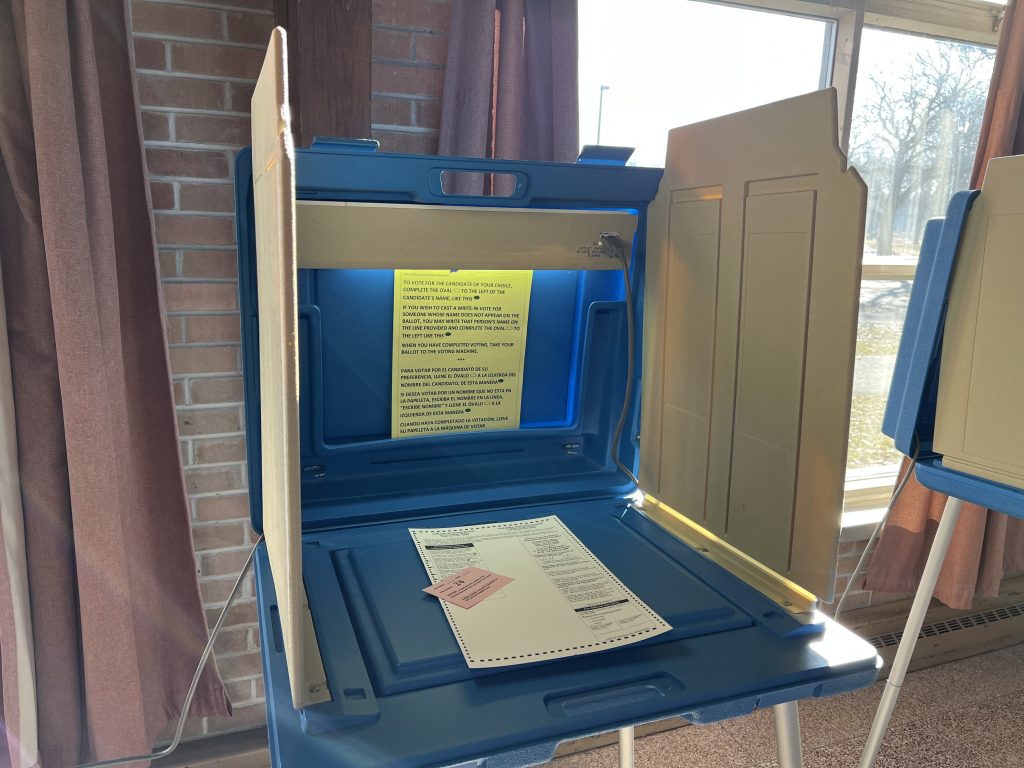2024 A Record Year for School, Local Funding Referendums
Hundreds of school districts, 31 local governments asked voters for more funding.
School Districts and local governments increasingly turned to voters for property tax increases in 2024.
There were a record number of funding referendums on ballots during the past year, according to a new report by the Wisconsin Policy Forum (WPF) a non-partisan public policy research organization.
Hundreds of school districts went to referendum asking voters for $5.9 billion in additional education funding. Likewise, 31 local governments around the state went to referendum seeking increases in the local property tax — even after the state passed legislation increasing local government aid in 2023.
This method of funding local governments and education does not come without consequences, the WPF notes. Especially as voters’ appetite for referendums begins to wane.
State Funding Not Meeting Cost of Education
Voters approved education referendums in 145 school districts totaling $4.4 billion in new funding, most of it in the form of debt.
“This will result in a property tax levy that will be higher than what otherwise would have been allowed under state limits – meaning voters willingly increased their own tax bills to ensure their local schools have additional resources,” the report states.
But the voters’ appetite for school funding referendums is waning. The WPF notes that while the number of districts going to referendum is increasing, the approval rating is dropping.
During the spring election, Milwaukee Public Schools only narrowly secured a $252 million funding increase over the next four years, which includes a $125 million property tax increase.
In Milwaukee, and elsewhere, inflation since the onset of the COVID-19 pandemic has wreaked havoc on school budgets. The state’s per-pupil formula for funding education is not working for hundreds of districts, forcing them to go to referenda.
This outcome is open to political interpretation, the policy forum notes. It could be inferred that the passage of school referendums “implicitly” suggests voters think state-imposed revenue limits are too stringent. It could also be argued that turning to voters to make decisions about their local school districts is proof the system is working.
“One potential result of the current system may be a growing imbalance between districts based on voters’ willingness and financial capacity to approve local school district referenda,” the forum warns. “Consequences could include difficulty attracting and retaining staff and students in districts where voters have not passed a referendum.”
Act 12 Not Enough
In 2023, the Republican-controlled state Legislature, Gov. Tony Evers and local leaders from across the state worked on a proposal increasing state aid to local governments.
The result was Wisconsin Act 12, which notably provided Milwaukee County and the City of Milwaukee with the authority to levy an additional sales tax, to help pay off massive, unfunded pension costs. The increase in state aid to the city and county was nominal compared to other communities around the state. Even so, Act 12’s funding wasn’t enough for many communities, not just Milwaukee.
In 2024, 31 municipalities went to referendum seeking additional property funding for local government services like public safety and road maintenance. Only 17 were approved.
Were it not for Act 12, there may have been more referendums, the WPF speculates. But in any case, state funding for local government has not kept pace with inflation for years, and still doesn’t. For Milwaukee County, this means the government has increasingly struggled to fund the services it is mandated by state law to provide.
County officials recently wrapped up the 2025 budget process, which included a significant $13 million increase for the Milwaukee County Sheriff‘s Office and the Community Reintegration Center (CRC). The increase adds to the overtime budget and is aimed at improving staffing in the circuit court system.
“While I recognize the importance of the services we deliver on behalf of the state, I would prefer to use our local dollars to invest in local priorities, like affordable housing, mental health services, public transit, safer streets, and our parks,” Crowley said in a statement after signing the budget.
Of the government services he mentioned, only one — mental health services — is actually required by the state.
Legislation Link - Urban Milwaukee members see direct links to legislation mentioned in this article. Join today
If you think stories like this are important, become a member of Urban Milwaukee and help support real, independent journalism. Plus you get some cool added benefits.






















